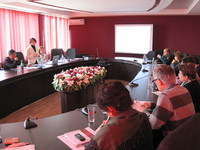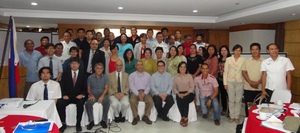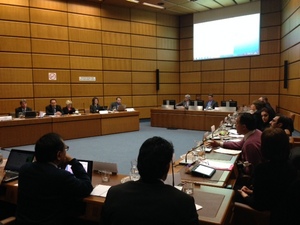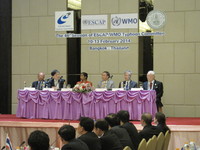23 February-1 March 2014 (ARMENIA)
 Since 2009, ADRC has initiated a pilot project of DRR Policy Peer Review with the aim of developing DRR capacity of the ADRC member countries by sharing information and strengthening the relationship among member countries.
Since 2009, ADRC has initiated a pilot project of DRR Policy Peer Review with the aim of developing DRR capacity of the ADRC member countries by sharing information and strengthening the relationship among member countries.
This year, Improving the earthquake safety of nursing homes and orphanages in Armenia was selected as one of the target projects of the fifth year. After the submission of country report, reviewer team composed of Ph.D. Aiko Sakurai (Associate Professor, Graduate School of International Cooperation Studies, Kobe University, Japan), Dr. Renato U. Solidum, Jr (Director, Philippine Institute of Volcanology and Seismology, Philippines) and Mr. Junji Moriwaki (Researcher of ADRC) had visited Armenia to conduct interview surveys.
The team visited National Survey for Seismic Protection Agency, involving in DRR activities to examine how they have been making efforts of developing DRR in Armenia. Then, the team conducted inspection of nursing homes and orphanages for checking current situations, and prepared a draft report of the survey result with all findings and recommendations. Also the workshop was held for getting opinion and comments to finalize the report as well as introducing good practices for DRR activities in Japan and Philippines. It provided a very good opportunity for exchanging opinions each other.
This project aims at developing the mutual learning process among the ADRC member countries instead of one-way learning. After the survey missions, reviewer team will compile survey reports and send them to target countries and then to the ADRC member countries to enhance cross-fertilization.
ADRC would like to express its sincerest gratitude to all of those who have made precious contribution to this project.
(2014/2/23 19:40)




